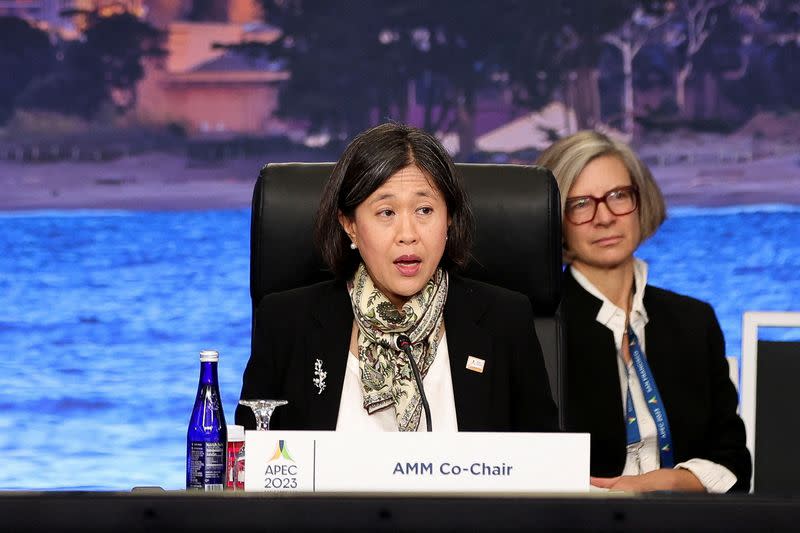Tariff increases on a range of Chinese imports will take effect from August 1, the US Trade Representative’s Office said on Wednesday.
The new tariff hikes will affect goods such as electric vehicle batteries, computer chips and medical products.
President Joe Biden will keep tariffs put in place by his Republican predecessor Donald Trump while ratcheting up others, including a quadrupling of EV duties to over 100% and doubling the duties on semiconductor tariffs to 50%.
ALSO SEE: G7 Ministers Seek Agreement on Russian Assets, Chinese Exports
The Trade Representative’s office said a 30-day public comment period will close June 28. They are seeking comments on the effects of the proposed tariff hike on the US economy, including consumers.
The US Trade Representative said the proposed Chinese tariff hikes “includes products targeted by China for dominance, or are products in sectors where the United States has recently made significant investments.”
The new measures affect $18 billion in imported Chinese goods including steel and aluminium, semiconductors, electric vehicles, critical minerals, solar cells and cranes, the White House said.
The EV figure, while headline-grabbing, may have more political than practical impact in the US, because currently America imports very few Chinese EVs.
For medical products, public comment is being sought on whether the tariffs on face masks, medical gloves, syringes, and needles need to be higher than proposed.
Big trade gap
The United States imported $427 billion in goods from China in 2023 and exported $148 billion to the world’s No-2 economy, according to the US Census Bureau, a trade gap that has persisted for decades and become an ever more sensitive subject in Washington.
US Trade Representative Katherine Tai has said the revised tariffs were justified because China was stealing US intellectual property.
But Tai has also recommended tariff exclusions for hundreds of industrial machinery import categories from China, including solar product manufacturing equipment.
Ahead of Biden’s expected action, China denounced the plan and vowed “resolute measures” to protect its interests. China has said the tariff measures are counter-productive and inflict harm on the US and global economy.
USTR said it would provide details on how companies could apply for machinery exclusions from the tariffs in a separate notice. But it said that any exclusions granted would be backdated to start on Wednesday and end on May 31, 2025.
- Reuters with additional editing by Jim Pollard
ALSO SEE:
US, EU Must Act Jointly on China’s Industrial Overcapacity: Yellen
Chinese Firms Seen Shifting Production Abroad to Avoid US Tariffs
Biden Ramps US Tariffs on Chinese EVs, Metals, PV Cells, Chips
Trade War Heating Up: China Hits Back After Biden Boosts Tariffs
China’s Theft of Trade Secrets Our No1 Concern: US Patent Chief
China Slams ‘Biased’ EU Over Electric Vehicle Imports Probe
Yellen Warns China on ‘Excess Production, Unfair Trade’
China Denies Cognac Probe Linked to EU’s EV Investigation
EU Says China EVs Funded by Subsidies, Plans Retroactive Tariffs
US ‘Pressured’ Mexico to Reel Back China EV-Maker Incentives
























